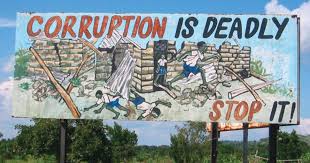Most Ugandans Believe Corruption Is Widespread

A new national survey by Twaweza has revealed that a vast majority of Ugandans three out of four believe corruption in the country is severe, with 52% describing it as “extremely severe” and another 22% labeling it “very severe.”
The report, based on data collected between June and July 2024 from 2,745 respondents across the country, highlights the deep public concern over corruption and growing divisions over how best to combat it and whether the government is doing enough.
The findings were released in a factsheet titled "Corruption: Ugandan Citizens’ Experiences and Opinions," drawn from the Sauti za Wananchi mobile phone survey, Africa’s first nationally representative high-frequency mobile polling initiative.
According to the survey, only 11% of respondents believe corruption is not a severe problem in Uganda. Concern over corruption cuts across all demographics—rural and urban, rich and poor, educated and less educated indicating widespread dissatisfaction.
Despite the strong perception that corruption is a major issue, the public remains split on whether the government is doing enough to address it. While 51% of respondents agree or strongly agree that government efforts are adequate, 36% disagree or strongly disagree with that assessment.
The survey shows that urban residents, wealthier individuals, and those with higher education levels are more likely to say the government is falling short in tackling corruption.
Asked how Uganda can effectively combat corruption, respondents overwhelmingly favored harsher enforcement. Arresting and prosecuting corrupt officials (29%) and enacting stricter laws (29%) emerged as the two most popular suggestions far ahead of other measures like improved supervision of government (7%) and conducting more audits (1%).
This reflects a public desire for stronger accountability and consequences for public servants involved in corruption.
The survey also sheds light on public skepticism toward the justice system. Nearly one-third (31%) of Ugandans disagree with the notion that everyone in Uganda is equal before the law. An even greater percentage expressed doubts about the fairness of the judiciary and police: 40% said the courts do not treat all citizens equally regardless of tribe, and 43% said the same about the police.
These perceptions were most pronounced among residents of the Greater Kampala Metropolitan Area, where trust in law enforcement and judicial institutions was lowest.
Violet Alinda, the Uganda Country Lead for Twaweza, said the data should serve as a wake-up call to government authorities and policymakers.
“Corruption is clearly part of the everyday experience of many citizens, and they don’t like it,” Alinda said. “When three out of four citizens say a problem is either extremely or very severe, we should all sit up and take notice. Perceptions of corruption on this scale are a sign that citizens have low trust in public servants to do their jobs properly.”
Alinda emphasized the need for government to strengthen institutional integrity, enforce existing laws, and ensure that perpetrators of corruption are held accountable.



0 Comments